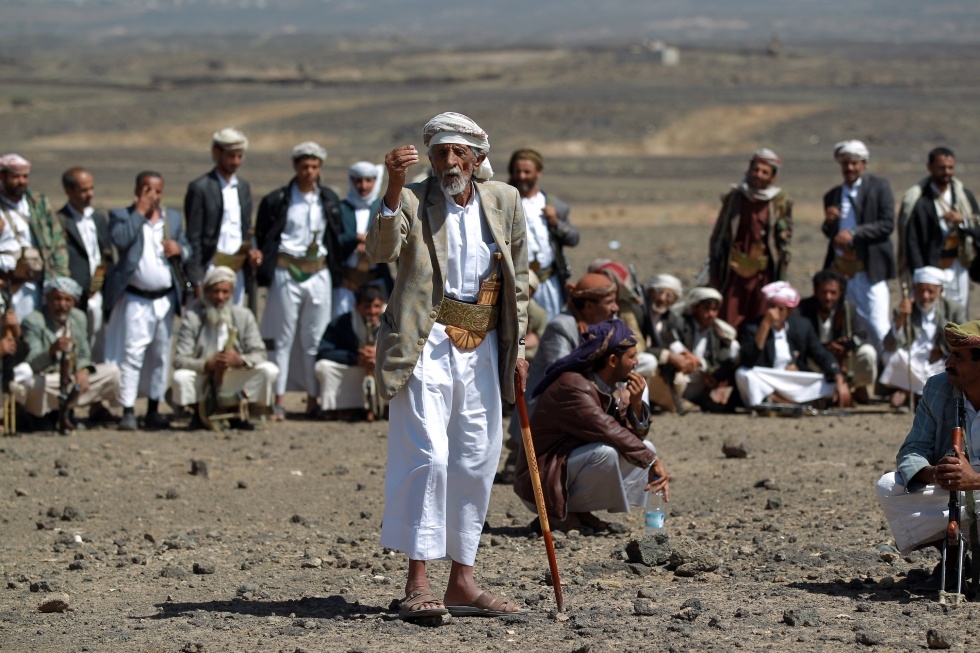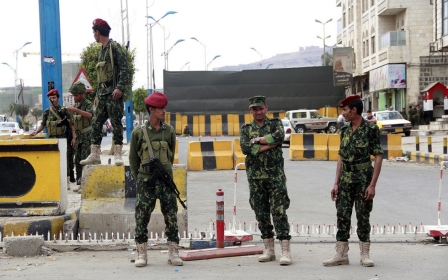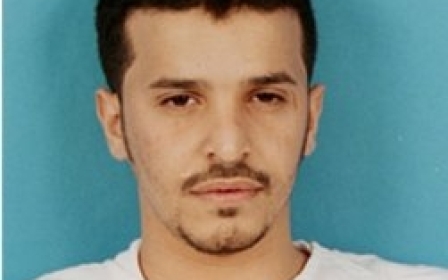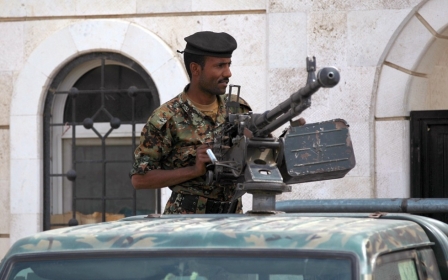At least 120 dead in Yemen

Fighting in Yemen left at least 120 people dead on Monday. Yemeni warplanes reportedly bombed locations where Houthi fighters were based and on the ground clashes also broke out between Houthi rebels and army forces.
Ahmed al-Bekry, deputy governor of Omran province, confirmed that warplanes had killed about 100 of the Shia Houthi fighters and added that 20 government soldiers had also been killed in the clashes.
The fighting is reported to have come to an end by the end of Monday evening when both sides agreed to a ceasefire.
The clashes had erupted after troops tried to expel rebels from a strategic position near Amran controling the road to Sanaa, local officials said.
The air force intervened to back the army and its allies from the Sunni Islah party, they said.
The rebels, known also as Ansarullah and backed by local tribes, retaliated by attacking telecom installations and blocked traffic on the main Amran-Sanaa road, the officials said.
Rebel spokesman Mohammed Abdulsalam, contacted by AFP, condemned the air force's intervention as a "very serious development" and warned of "consequences".
During the fighting, inmates escaped from an Amran jail, which came under rebel attack, the interior ministry said on its website.
A police source told AFP that 10 Houthi rebels detained for "serious criminal charges" were among those who escaped.
And in Sanaa, unknown gunmen opened fire on the home of Prime Minister Mohamed Basindawa, without causing injury, a security source said.
The rebels are suspected of trying to enlarge their sphere of influence as Yemen is split into six regions, pushing out from their mountain strongholds in the far north to areas closer to Sanaa.
The rebels complained Yemen would be divided into rich and poor regions under a federalisation plan agreed in February following national talks as part of a political transition.
Houthis have been fighting the central government for years, complaining of marginalisation under ex-president Ali Abdullah Saleh, who was ousted in a 2012 uprising.
In February, they seized areas of Amran province in fighting with tribes that left more than 150 people dead.
New MEE newsletter: Jerusalem Dispatch
Sign up to get the latest insights and analysis on Israel-Palestine, alongside Turkey Unpacked and other MEE newsletters
Middle East Eye delivers independent and unrivalled coverage and analysis of the Middle East, North Africa and beyond. To learn more about republishing this content and the associated fees, please fill out this form. More about MEE can be found here.




